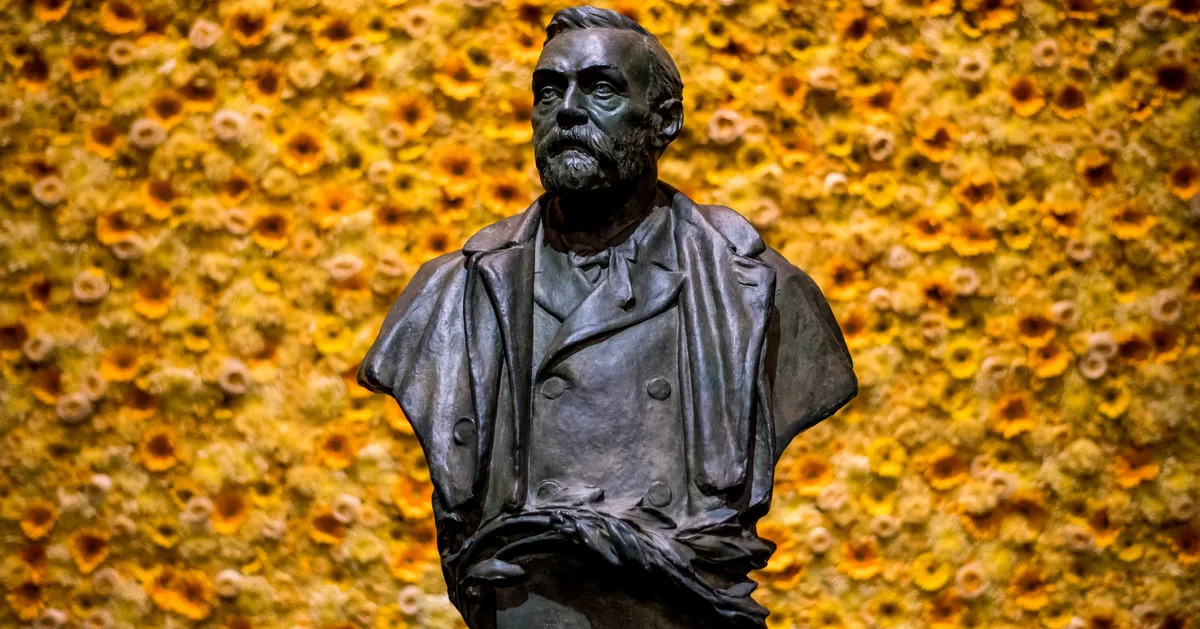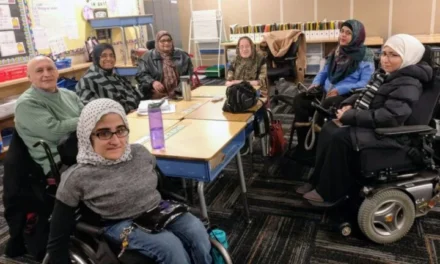The Nobel Prize, established by the will of Alfred Nobel in 1895, continues to be one of the most prestigious accolades in the world, recognizing outstanding achievements across six categories: Peace, Literature, Physics, Chemistry, Physiology or Medicine, and Economic Sciences.
Each year, the Nobel Committee’s announcements, made in early October, generate global excitement as they celebrate individuals and organizations that have significantly advanced human knowledge and societal progress. The 2024 winners have pushed the boundaries of their respective fields, addressing critical issues ranging from nuclear disarmament to innovative scientific breakthroughs.
The selection process is rigorous and begins with a nomination phase, where qualified nominators—including university professors, previous laureates, and members of national assemblies—submit candidates for consideration. Each Nobel Committee, composed of experts in the respective fields, meticulously reviews these nominations, often consulting additional experts to evaluate candidates’ contributions.
The final decision is made through a majority vote within the awarding institutions, which include the Royal Swedish Academy of Sciences for Physics and Chemistry, the Nobel Assembly at the Karolinska Institute for Medicine, the Swedish Academy for Literature, and the Norwegian Nobel Committee for Peace. This structured approach ensures that the prizes are awarded to those whose work not only advances knowledge but also benefits society at large.
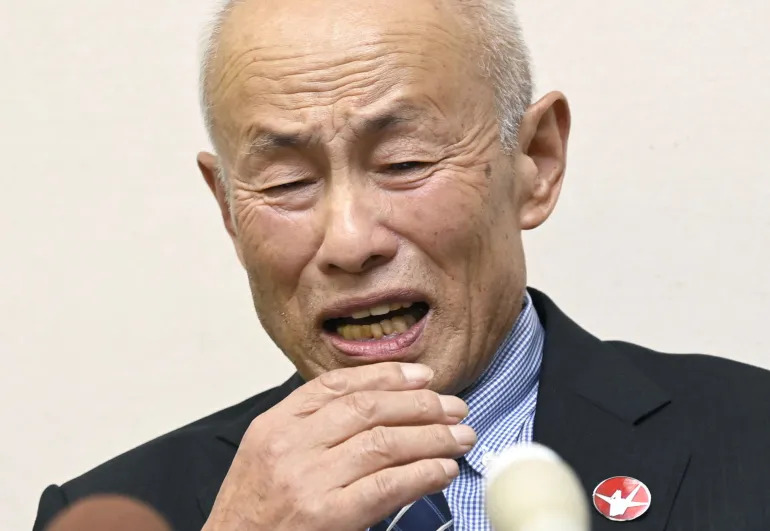
Japanese atomic bomb survivor group Nihon Hidankyo wins Nobel Peace Prize
Nobel Peace Prize
The 2024 Nobel Peace Prize was awarded to Nihon Hidankyo, honoring the survivors of Hiroshima and Nagasaki (Hibakusha) for their relentless fight against nuclear weapons. Co-chair Tomoyuki Mimaki reflected, “Is it really true? Unbelievable!” Their testimonies have shaped global opposition to nuclear arms, reinforcing the “nuclear taboo.”
However, this norm is now under threat, with nations modernizing arsenals and conflicts, like Gaza, raising fears of escalation. “Nuclear weapons can be used by terrorists,” Mimaki warned, stressing the dangers of unstable regions.
The Nobel Committee highlighted the continued relevance of their message, with the shadows of Hiroshima and Nagasaki still looming over humanity. This award is both a tribute and a plea for the world to act, ensuring that future generations are spared the catastrophic risks of nuclear conflict.
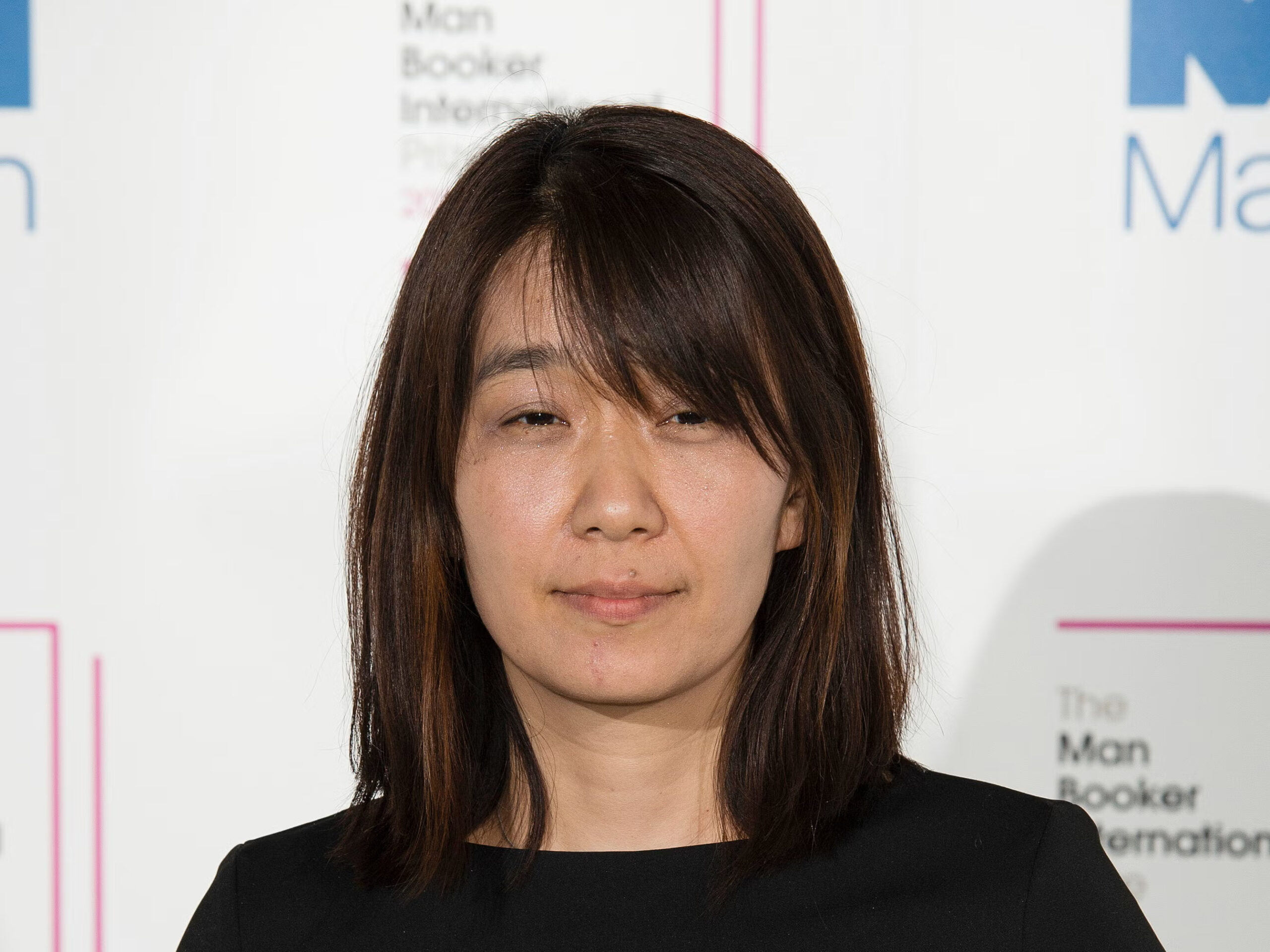
The first South Korean to win the literature prize
Nobel Prize in Literature
South Korean author Han Kang, the first from her country to win the Nobel Prize in Literature, was honored for her “intense poetic prose” that tackles historical traumas and the fragility of human life. In her works like The Vegetarian and Human Acts, Kang gives voice to victims of both personal and collective suffering, particularly highlighting South Korea’s violent past.
As Nobel Committee Chairman Anders Olsson remarked, her prose reveals a “unique awareness of the connections between body and soul, the living and the dead.” Kang’s compassionate, yet brutal narratives provide a powerful reflection on how trauma—whether rooted in war, colonization, or personal loss—continues to shape individuals and societies. Reflecting on her win, Han modestly shared, “I’ll celebrate it quietly, maybe with tea with my son.
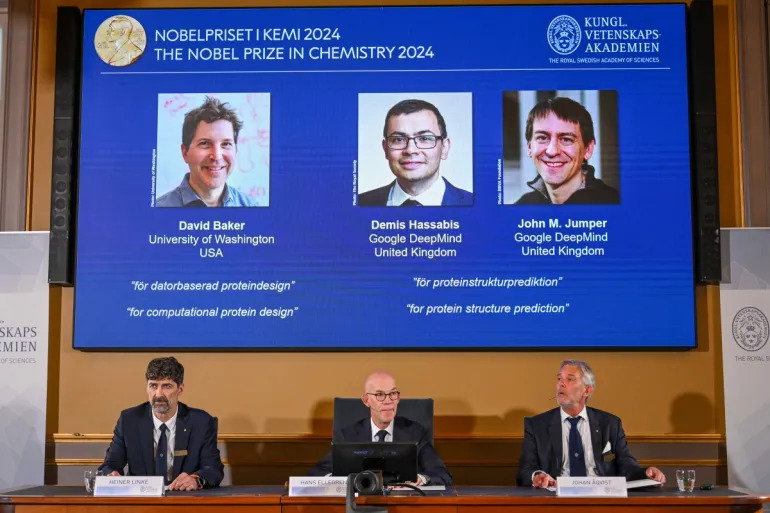
The Royal Swedish Academy of Sciences awards the 2024 Nobel Prize in Chemistry
Nobel Prize in Chemistry
The 2024 Nobel Prize in Chemistry honors groundbreaking advances in protein science that could transform medicine and biotechnology. David Baker was awarded for his revolutionary work in computational protein design, which allows scientists to create entirely new proteins with customized shapes and functions.
Meanwhile, Demis Hassabis and John Jumper developed the AI model AlphaFold2, which cracked a decades-old puzzle by accurately predicting protein structures. ”
“I’m really excited about all the ways in which protein design makes the world a better place in health, medicine and, really, outside technology,” Baker said.
The work of Baker, Hassabis, and Jumper has not only addressed the longstanding protein folding issue but has also paved the way for a new era of AI-driven modeling, enhancing our understanding and design of the essential molecules that support all life.
“The impact of this year’s prizes in protein design and protein structure predictions is truly huge,” said Johan Aqvist, a member of the 2024 Nobel Committee for Chemistry.
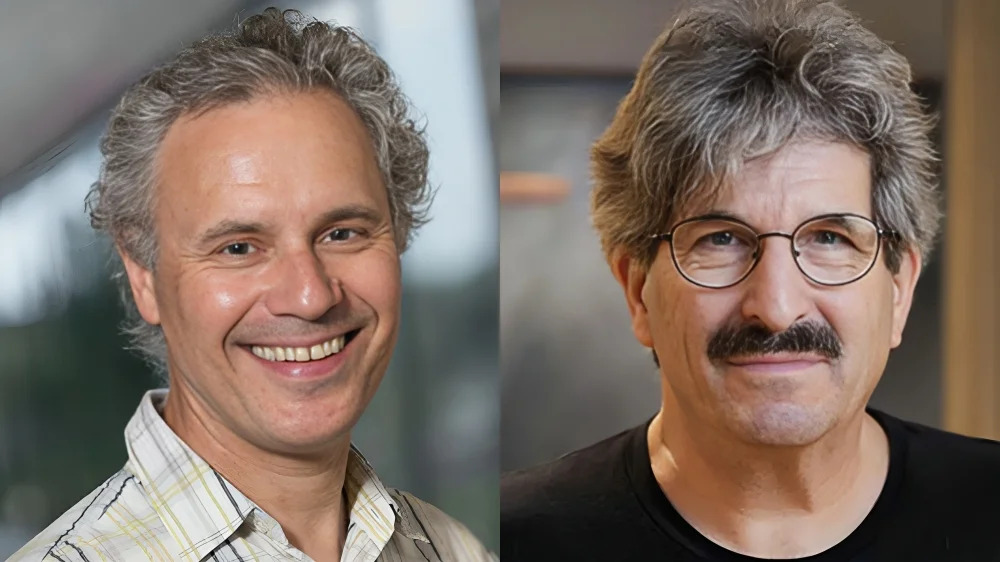
US duo Victor Ambros, Gary Ruvkun
Nobel Prize in Medicine
Victor Ambros and Gary Ruvkun have been awarded the 2024 Nobel Prize in Physiology or Medicine for their groundbreaking discovery of microRNAs, which are tiny RNA molecules about 22 base pairs long that play a vital role in regulating gene expression.
This pivotal research, initially conducted on the roundworm Caenorhabditis elegans, has significant implications for understanding human health. They revealed a fundamental principle governing gene regulation by demonstrating how microRNAs bind to specific mRNA molecules to inhibit protein production.
At the announcement, Nobel committee chair Gunilla Karlsson Hedestam stated, “This research helps our basic understanding of how cells differentiate and become specialised” and highlighted the potential for future therapies derived from this knowledge. The implications of their work are profound, as microRNAs have transformed genetics and are now crucial for therapeutic research targeting various genetic disorders, including cancer.
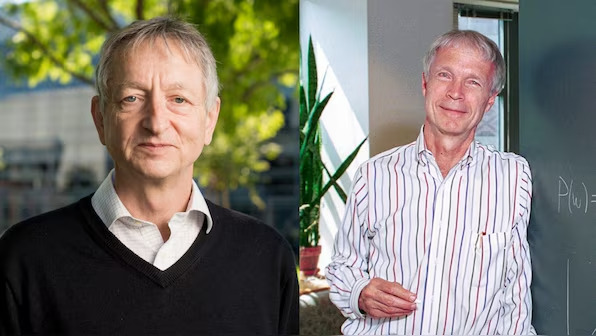
John Hopfield and Geoffrey Hinton
Nobel Prize in Physics
The 2024 Nobel Prize in Physics was awarded to John Hopfield and Geoffrey Hinton for their work in laying the foundations of modern machine learning. By applying principles of physics, they developed models that mimic the neural networks in our brains.
Hinton’s work, in particular, has become crucial for today’s deep learning systems—technologies that now power everything from medical diagnostics to self-driving cars. Their discoveries have not just changed how machines process information but have fundamentally altered our relationship with technology, making artificial intelligence an increasingly integral part of everyday life.
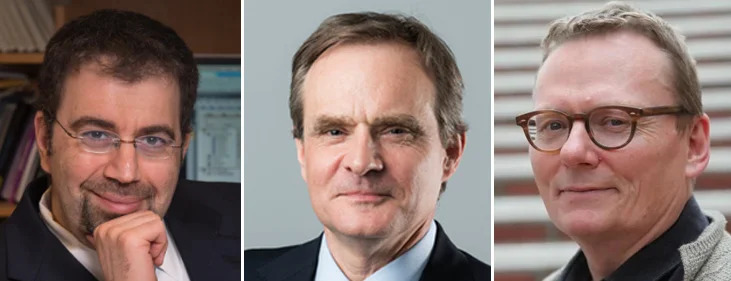
Daron Acemoglu, Simon Johnson, and James Robinson
Nobel Prize in Economics
Daron Acemoglu, Simon Johnson, and James Robinson have been awarded the 2024 Nobel Memorial Prize in Economic Sciences for their influential research on the pivotal role of institutions in shaping a nation’s economic prosperity. Their findings illustrate why some countries flourish while others remain ensnared in poverty, with a particular focus on the impact of colonialism. The Nobel committee noted that “societies with a poor rule of law and institutions that exploit the population do not generate growth or change for the better.”
In his response to the award, Acemoglu expressed his surprise, stating, “You never expect something like this. I am delighted. It’s just a real shock and amazing news.” He emphasized that their research “broadly speaking favors democracy,” suggesting a pathway toward sustainable development.
Their recent collaboration, “Power and Progress,” explores how digital technologies can be harnessed to create jobs and wealth, contingent on effective management. Overall, their work provides essential insights into contemporary global challenges, underscoring the significance of strong and equitable institutions for achieving sustainable development.
By Kanza Emaan
